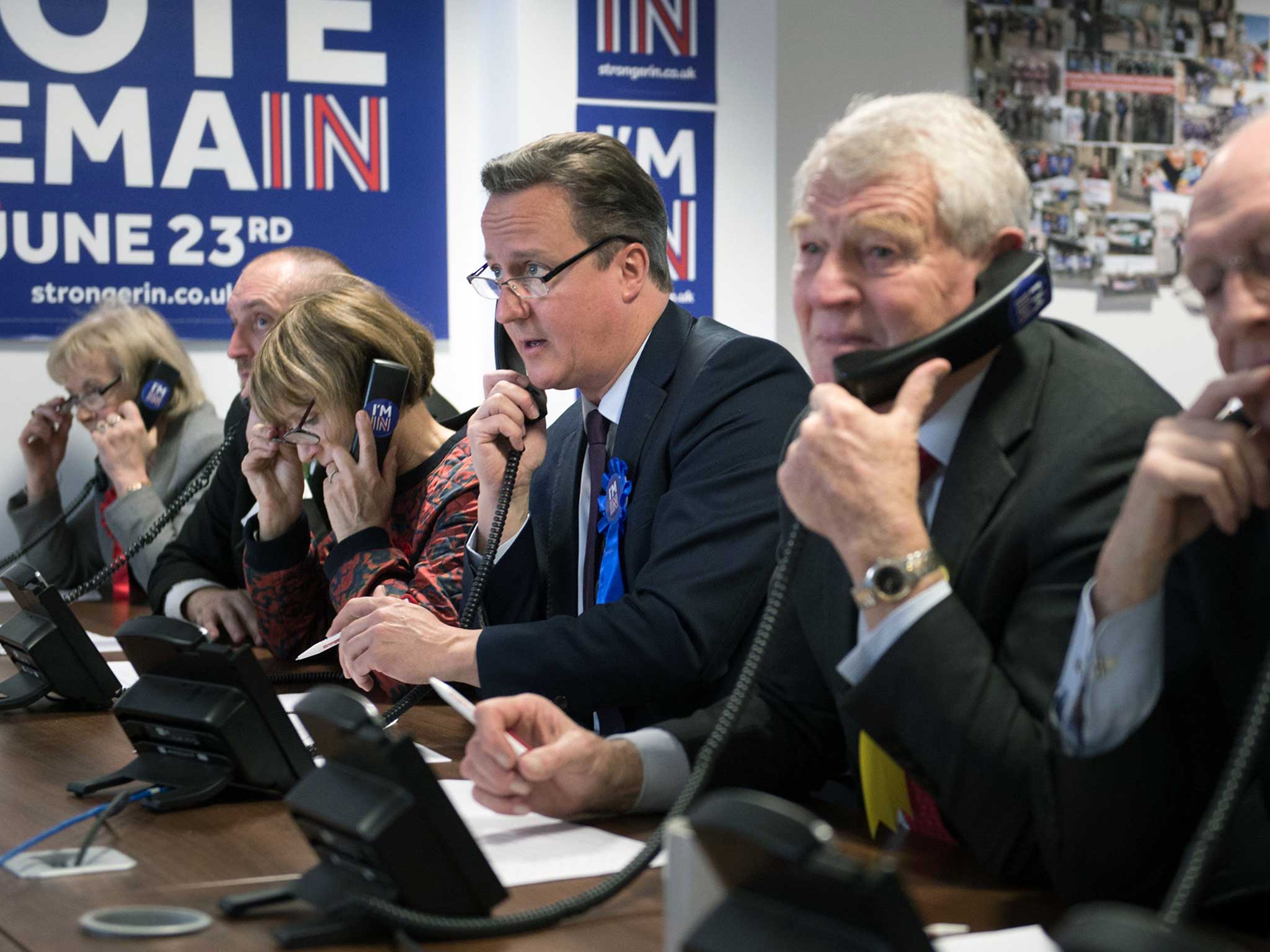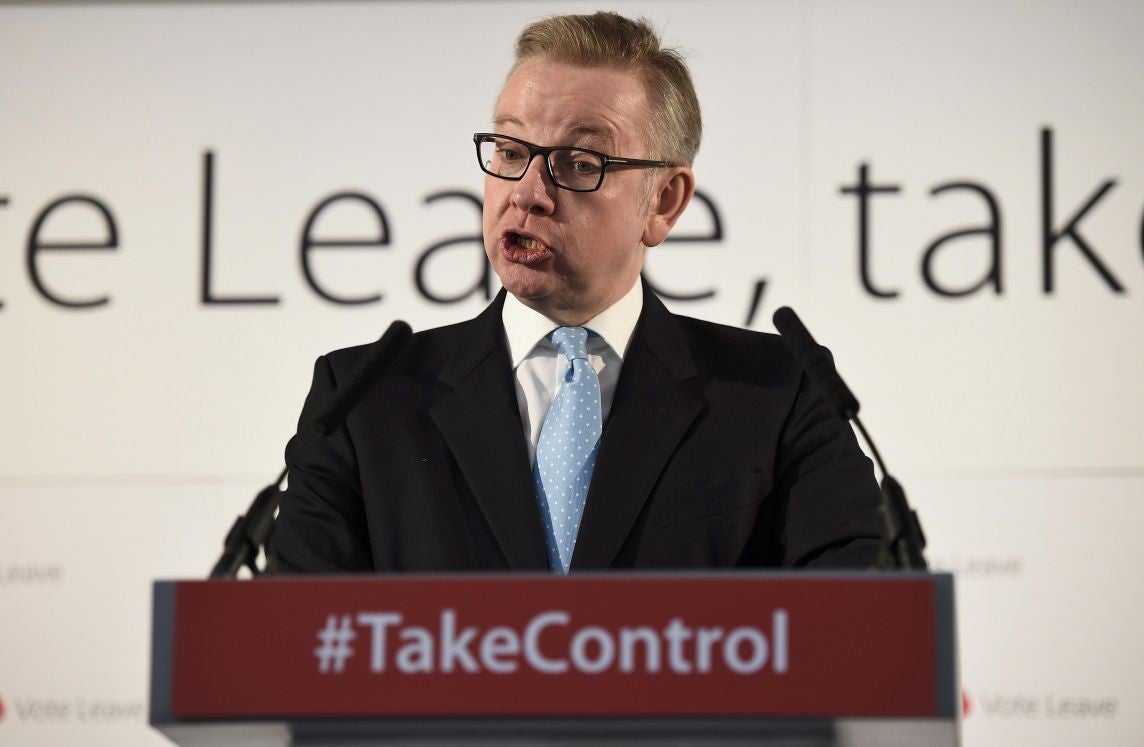EU Referendum: Britain will be 'less safe' outside the EU says former head of MI6
'We are only secure because the wider Europe is secure'
Your support helps us to tell the story
From reproductive rights to climate change to Big Tech, The Independent is on the ground when the story is developing. Whether it's investigating the financials of Elon Musk's pro-Trump PAC or producing our latest documentary, 'The A Word', which shines a light on the American women fighting for reproductive rights, we know how important it is to parse out the facts from the messaging.
At such a critical moment in US history, we need reporters on the ground. Your donation allows us to keep sending journalists to speak to both sides of the story.
The Independent is trusted by Americans across the entire political spectrum. And unlike many other quality news outlets, we choose not to lock Americans out of our reporting and analysis with paywalls. We believe quality journalism should be available to everyone, paid for by those who can afford it.
Your support makes all the difference.The former heads of MI5 and MI6 have issued a stark warning that leaving the European Union could undermine “our ability to protect ourselves” from terrorists.
In a direct challenge to Leave campaigners who have argued that Britain’s membership of the EU leaves the country more vulnerable to terrorist attack, Baron Evans of Weardale, the former director-general of MI5, and Sir John Sawers, the former head of MI6, said the opposite was true.
They argued that a vote to leave could damage intelligence sharing because the EU would restrict surveillance powers if the UK were not in the union.
“Intelligence work today relies on the lawful and accountable use of large data-sets to reveal the associations and activities of terrorists and cyber-attackers,” they write in an article for the Sunday Times.
“The terms on which we exchange data with other European countries are set by agreement within the EU.
“As an EU member, we shape the debate, we push for what we think is the right balance between security and privacy and we benefit from the data that flows as a result.”
They conclude: “An agreement reached without us would probably be too restrictive for our needs . . . this could undermine our ability to protect ourselves.”
Sir John later told BBC1's Andrew Marr Show: "It's not just about the day-to-day co-operation, it's about the wider stability of our continent. We are only secure because the wider Europe is secure.
"Pulling out will make it more dangerous. There is a real risk of the pressures on the European Union - migration pressure, economic pressures, pressures from Russia - pulling the European Union apart.
"We are seeing politics in Europe going to the extreme left, to the extreme right. We need to make sure that the centre is solid and the European Union plays its role underpinning democracy, human rights and the rule of law in Europe."
While the two men insisted that there intervention was not at the behest of Downing Street David Cameron will seize on their remarks as supporting one of the three central planks of the “remain” campaign tomorrow.
The prime minister will launch a new phase of the European Union referendum campaign stressing the importance of the UK's ties with Brussels in protecting national security.
"I want to show that if you love this country, if you want to keep it strong in the world, and keep our people safe, our membership of the EU is one of the tools - one of the tools - that helps us do these things, like our membership of other international bodies like Nato or the UN Security Council," he will say.
"And I have just one yardstick: how best do we advance our national interest?

"Keeping our people safe at home and abroad, and moulding the world in the way that we want - more peaceful, more stable, more free, with the arteries of commerce and trade flowing freely.
"That is our national interest in a nutshell - and the question that has confronted every British prime minister since the office was created is: how best to advance Britain's interests in the circumstances of the day?
"If my experience as Prime Minister had taught me that our membership of the EU was holding Britain back or undermining our global influence, I would not hesitate to recommend we should leave.
"But my experience is the opposite."
But the Justice Secretary Michael Gove insisted the country would be safer outside the EU.
He dismissed the warnings from Sir John, highlighting that other experts including former MI6 chief Sir Richard Dearlove and ex-Interpol boss Ron Noble had issued warnings about the EU's "open borders" policy.
Mr Gove said: "I have enormous respect for Sir John and his tradition of public service, but he is flat wrong."
He added: "I'm the Justice Secretary, I know that the European criminal records information system (Ecris) doesn't allow us to know whether or not criminals come into this country.

"We only find out whether or not people have criminal records after they have already committed an offence in this country. It is a gossamer-thin protection."
The UK's most valuable intelligence-sharing deal was with the Five Eyes group of the US, Canada, Australia and New Zealand.
"Within the EU, intelligence sharing doesn't work effectively," he said.

Join our commenting forum
Join thought-provoking conversations, follow other Independent readers and see their replies
Comments